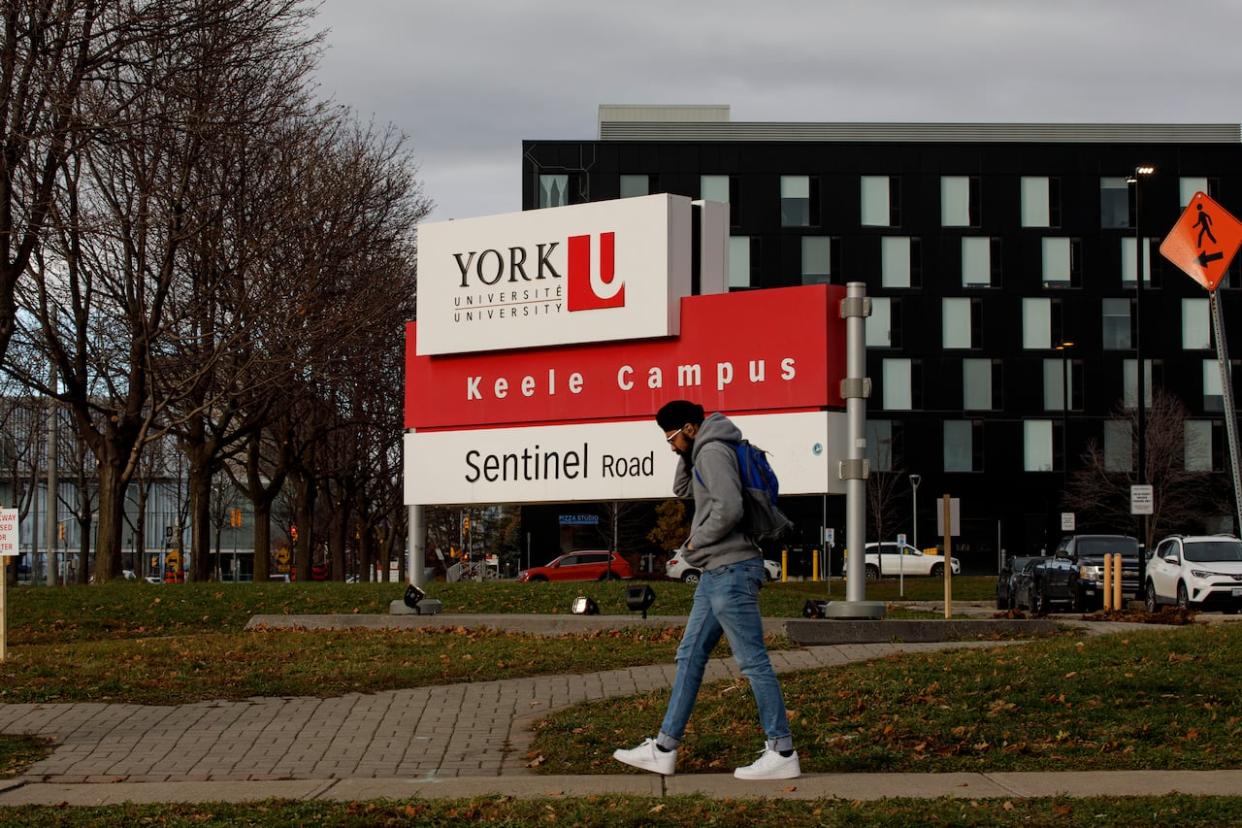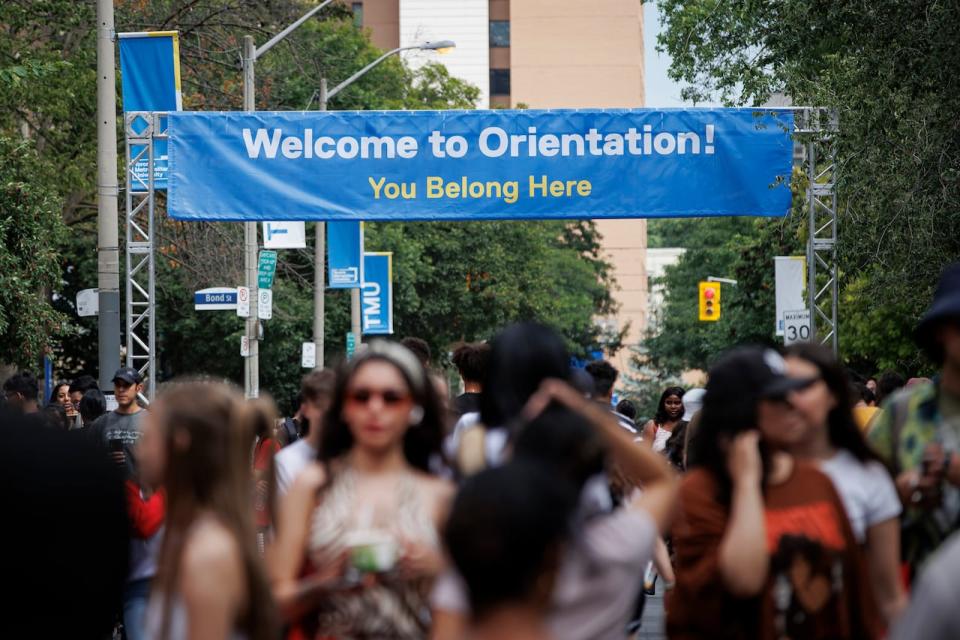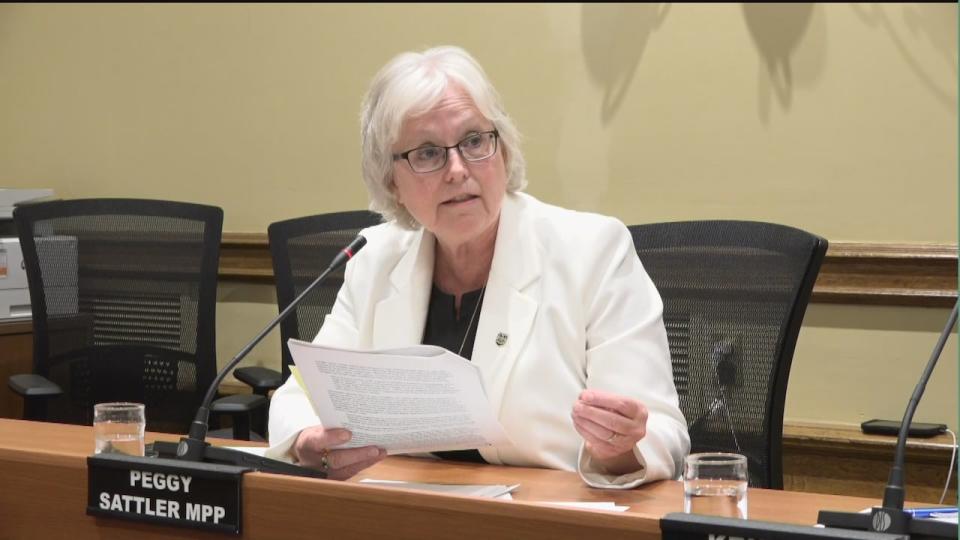Profs call Ford government bill 'political inference' on campus

Some Ontario academics are waging a campaign against new legislation from Premier Doug Ford's government that they say would pave the way for political interference on campus.
Bill 166, called the Strengthening Accountability and Student Supports Act, would give the minister of colleges and universities sweeping powers over campus anti-racism and mental health policies.
While the government says the intent of the legislation is to ensure safety and support for post-secondary students, a growing group of professors says the bill undermines the independence of Ontario's universities.
"Bill 166 fundamentally changes the way universities in this province are governed, moving us away from democratic principles of university autonomy," said Sue Ferguson, an associate professor emerita at Wilfrid Laurier University.
"We need to ensure that the safeguards from political interference in our institutions of higher learning are strengthened, not weakened," Ferguson told a legislative committee hearing at Queen's Park this week.
Ferguson is part of a newly formed group called the Coalition Against Political Interference in Public Research and Education in Ontario. The group has mounted a letter-writing campaign directed at Colleges and Universities Minister Jill Dunlop, calling for the bill to be quashed.

Ontario's Minister of Colleges and Universities, Jill Dunlop, says Bill 166 follows a rise in racist incidents on campuses since last October's Hamas attack against Israel. (Arlyn McAdorey/The Canadian Press)
"Instead of advancing student mental health and anti-racism on campuses, this bill stymies both and opens to the door to a degree of political interference that would shatter the integrity of Ontario's post-secondary institutions," says the group's letter.
The Council of Ontario Universities, the umbrella group representing the province's 23 universities, has also raised concerns about the powers that the bill gives to the minister and the risk that it would undermine their autonomy.
Universities already have mental health and anti-racism policies in place, but provincial funding for those programs is inadequate, the council says in its response to the bill.
"Ontario's universities oppose unnecessary and duplicative legislative intervention without the associated funding," says the council's submission. "A new directive will only duplicate existing efforts, while increasing red tape, costs and administration."
Rise in racist incidents on campus: Dunlop
Dunlop defended Bill 166 during the committee hearing this week, saying that it follows a rise in racist incidents on campuses since last October's attack by Hamas against Israel.
"While post-secondary institutions have taken action to address these incidents, it's clear that a broader, more proactive approach is needed so that all incidents are dealt with in an appropriate manner," Dunlop said.
"This does not detract from the fact that colleges and universities should be a place where students feel free to exchange ideas and have open and respectful debate," she added.

The Council of Ontario Universities has raised concerns that the bill gives the minister unnecessary powers that could undermine university autonomy. (Evan Mitsui/CBC)
Dunlop said the bill would also result in a standard policy for mental health supports and services for students no matter which institution they attend.
If the government truly wants to tackle racism on campus, it should reverse the cuts it made to the provincial anti-racism directorate in 2018, says Honor Brabazon, an associate professor at St. Jerome's University, part of the University of Waterloo.
The government disbanded four of the directorate's advisory committees — on antisemitism, Islamophobia, anti-Black racism and anti-Indigenous racism — that were designed to make recommendations on anti-racism policies.
"We haven't seen from this government the kind of strong case that we would expect them to make to justify weakening the fundamental democratic principle of institutional autonomy," Brabazon said during the public hearing.
The bill would give Dunlop the power to issue "ministerial directives" specifying what elements must be included in a college or university's anti-racism or mental health policy.
"It allows us to act faster, to be more flexible and responsive to what's actually happening on campus," Dunlop said.

Peggy Sattler, the NDP's critic for colleges and universities, pressed the minister about Bill 166 during a legislative committee hearing at Queen's Park this week. (Ontario Legislative Assembly)
That makes NDP post-secondary critic Peggy Sattler leery.
"I have some major concerns about the lack of transparency," Sattler told the committee. "There are legitimate questions about what these ministerial directives are going to include."
Consequences for non-compliance unclear
The bill would also give the minister the power to take steps against colleges or universities that don't comply, but does not indicate what those steps could be.
During the hearing, Sattler asked what consequences the schools could face for failing to meet her directives, but Dunlop did not provide a direct answer.
While Ontario's colleges have since their inception operated under the direct authority of cabinet, the bill is the latest move by the Ford government to establish greater provincial control over universities:
The government announced in February a $1.2 billion increase to colleges and universities over the next three years. That's half the increase that was recommended by the province's own advisory panel before Ottawa moved to cap international student intake this year.


